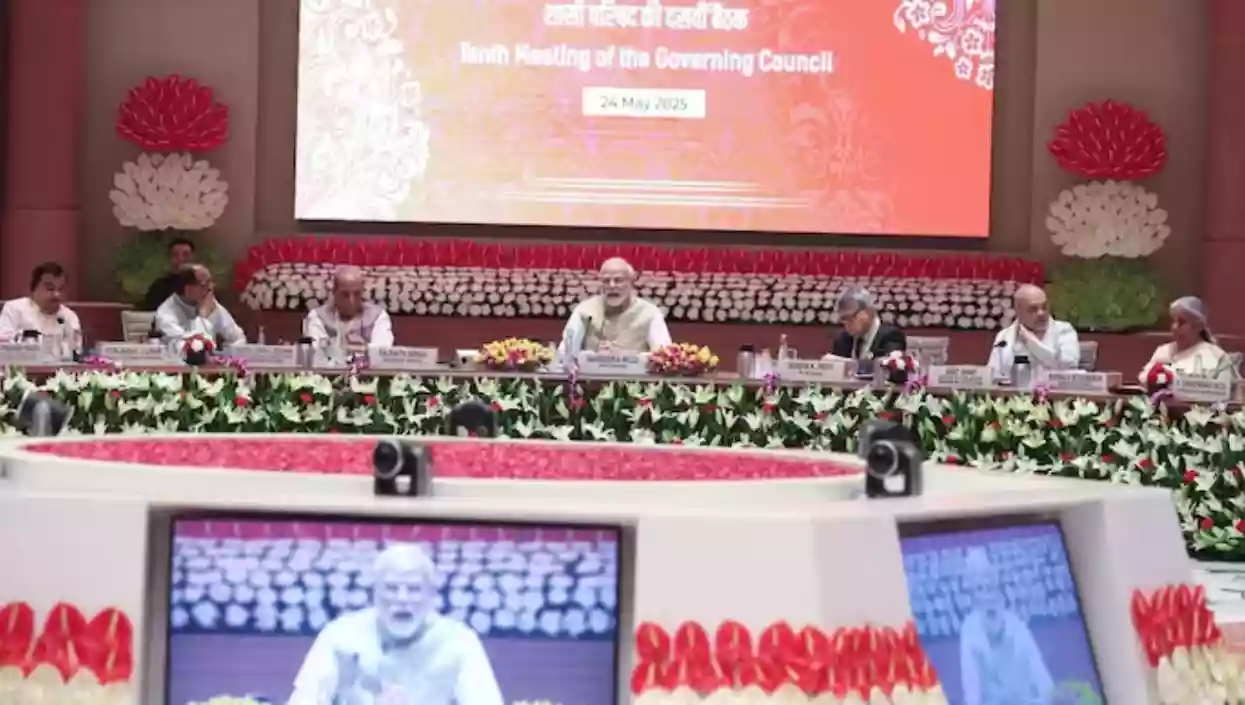.gif)
.gif)

Prime Minister Narendra Modi, at the Niti Aayog governing council meeting, laid out a bold vision urging states to accelerate development by building “future-ready” cities and creating globally competitive tourist destinations. In his first meeting with state chief ministers following Operation Sindoor and rising hostilities with Pakistan, PM Modi introduced the “one state, one global destination” concept to boost tourism and regional development. He said such efforts would not only elevate each state’s global standing but also help adjoining cities grow as satellite tourist hubs.
Despite the fallout of the recent terror attack in Pahalgam that claimed 26 lives and triggered a mass tourist exodus, Modi’s tourism pitch reflected a firm resolve to move forward. He underlined that India’s developmental journey must not be derailed by acts of terror. “States should develop at least one tourist destination per state at par with global standards by providing all necessary infrastructure,” he told the gathering.
The Prime Minister stressed that India’s path to becoming a developed nation by 2047 hinges on faster development through cooperative federalism. “We have to increase the speed of development. If the Centre and all the States come together and work like Team India, no goal is impossible,” he said, calling for unity across party lines.
PM Modi also focused on urbanisation and sustainability, stating that “growth, innovation and sustainability” must guide future-ready city planning. He pushed for integrated development at every level—from cities and municipalities to villages—under the broader vision of ‘Viksit Bharat’. He also highlighted the importance of women's inclusion in the workforce, advocating legal and policy support to ensure their respectful integration.
However, the absence of chief ministers from Puducherry, Karnataka, and Kerala was noticeable, though their southern counterparts from Andhra Pradesh, Tamil Nadu, and Telangana did attend. Leaders from Jammu and Kashmir and Himachal Pradesh also participated, underlining a mixed political response to the Centre’s development appeal.